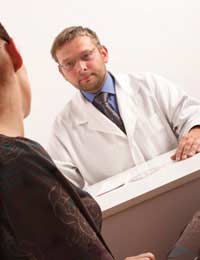Work As A Cardiovascular Technician

Heart health is critical to every person and for patients who have heart problems, their medical care plays a huge role in the quality and length of their life. Cardiovascular technicians are health professionals who help patients suffering from problems relating to the heart and blood vessels.
A Typical Day As A Cardiovascular Technician
A cardiovascular technician supports physicians in the diagnosis and treatment of heart conditions. They work in many vital capacities to help facilitate strong patient care. A cardiovascular technician may work in administrative tasks to schedule patient appointments and also review the interpretations of test results by a physician. They monitor changes in a patient’s heart rate and keep a track of patient files.An Important And Diverse Role In Healthcare
One of the benefits of working as a cardiovascular technician is the potential to specialise in a specific medical area of cardiology. For instance, you can specialise in invasive cardiology or non-invasive cardiology. Someone working in invasive cardiology would help a physician with catheter procedures, or focus on electrocardiograms, which uses ultrasound to look at the heart in more detail.Those in non-invasive cardiology may perform non-invasive tests (any test that does not involve inserting probes or similar instruments into a patient's body) and view ultrasound results. Cardiovascular technicians may also administer medication to patients to monitor the functioning of their heart.
Some cardiovascular technologists may also focus on circulation, where they help physicians to diagnose disorders that affect a patient’s circulation. In a typical day, a technologist may take a patient’s medical history, and assess their pulse and blood flow in the arteries and veins. They may use a variety of non-invasive techniques to determine critical vascular data, such as blood pressure, peripheral circulation and vascular blood flow.
Skills For Success As A Cardiovascular Technician
Cardiovascular technicians tend to work in hospitals or similar healthcare settings. They spend a lot of time on their feet and may have to lift patients to transfer them to various places. As they can work quite closely with patients, they need to be able to handle stress well.Patients in this field can have serious heart problems and these may sometimes involve life-threatening complications. Patients may be frustrated and angry due to a reduced quality of life. A cardiovascular technician must be ready to handle challenging patients. A soothing bedside manner and empathy skills are important in this role. In addition, a techician needs to have a certain level of mechanical skills to successfully operate all equipment.
Working Conditions And Hours
The role offers stable, normal working hours during the usual business working week, and occasionally there may be weekend work. A small number in catheterisation laboratories can work longer and irregular hours. Being on-call can also be part of the role.Training And Education
Most cardiovascular technicians require a minimum of two years' university education, along with professional accreditation. Much of their training in a practical sense will be on-the-job. There are, however, three and four years of training programs and some people enter the profession having already obtained degrees in other health fields.Job prospects are excellent at the present time and the field is experiencing significant growth. There is enormous scope for work in both hospitals and private care settings for cardiovascular technicians. With obesity on the rise and with it, heart-related problems also increasing, the need for qualified cardiovascular technicians follows suit and will continue to grow.







